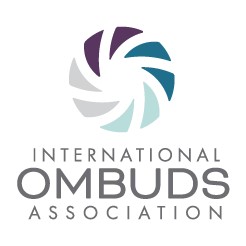We can:
- Listen.
- Help to analyze a problem.
-

Identify and explain relevant University policies and procedures.
- Help to identify options.
- Make referrals to other campus resources.
- Provide coaching on effective conflict management.
- Conduct informal assessments of situations.
- Carry out shuttle diplomacy by serving as a go-between to resolve problems.
- Conduct group facilitations.
- Mediate conflicts.
In addition to these services to visitors, we also identify trends on campus, recommend changes in University policies and procedures, and conduct outreach presentations tailored to various constituencies within organizational units.
What kinds of problems does the Office of the Ombudsperson handle?
The Office of the Ombudsperson will handle a wide variety of problems, especially problems that are not being adequately addressed through regular University channels. If you are unsure whether a problem can be addressed by the Ombudsperson, feel free to call the office (319-335-3608) for advice. The Office of the Ombudsperson may be able to help you:
- When you have a situation requiring communication or negotiation help.
- When you are unsure which policies, procedures or regulations apply in your situation.
- When you feel a policy, procedure, or regulation has been applied unfairly or erroneously to you.
- When you have a complaint about an office or service at the University of Iowa.
- When you want to discuss a sensitive issue in confidence.
- When you are unsure of where to go or what options are open to you.
Staff, faculty, students, postdocs, residents and fellows can contact the Ombuds Office with any question or concern. Typical issues we help with include:
Staff
Problems with supervisors or coworkers; concerns about discipline, performance evaluations, salary or benefits, and leaves.
Faculty
Problems with administrators or colleagues; issues with teaching or research; concerns about promotion and tenure; concerns about salary, benefits, and leaves.
Students
Conflicts over grades, course requirements, and other academic issues; problems with advisors or other faculty members; academic or nonacademic discipline; student employment.
Flow Chart
This flow chart depicts the process of working with the Office of the Ombudsperson: ombuds_office_flowchart.pdf